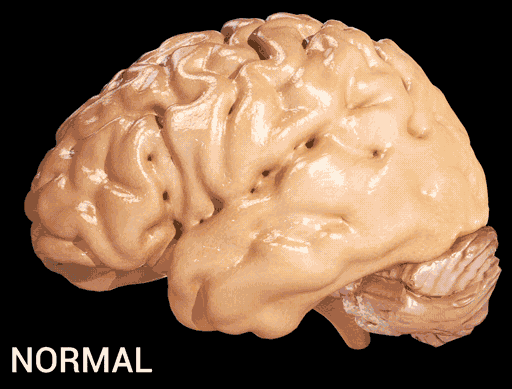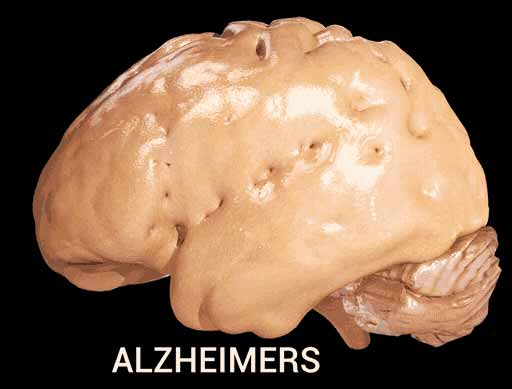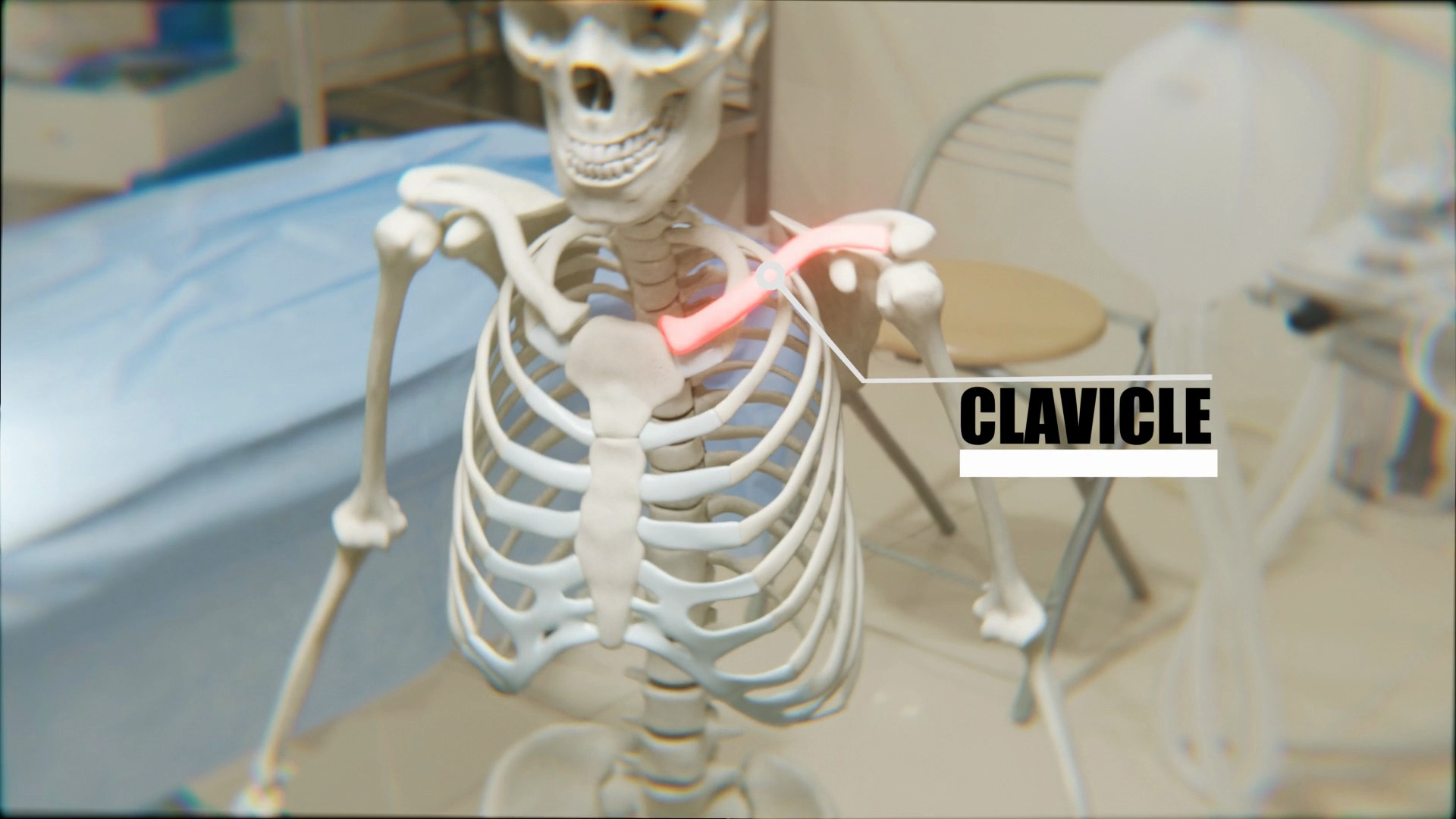Alzheimer’s disease - Cortical Atrophy.
Cortical atrophy in Alzheimer’s Disease
Alzheimer’s disease is a neuro-degenerative medical condition, leading to dementia. There is substantial atrophy of cortex in patients with Alzheimer’s Disease, associated with loss of sulci and gyri in the parietal lobe and temporal lobe, and parts of the cingulate gyrus and frontal cortex.
Alzheimer’s Disease is a progressive disease, which means it gets worse as days pass by. The most common symptom is short term memory loss. There may also be mood changes or behavioural changes and language problems too. Atrophy of brain is due to loss of neurons and the connections between them. It is infact the most common cause of dementia(memory loss).

Cause of Alzheimer’s disease
It is assumed that Alzheimer’s disease is caused due to protein misfolding, causing accumulation of tau protein(hence called taupathy) and abnormally folded amyloid beta protein in the brain. These plaques and proteins are supposed to build up in the brain and cause loss of connections between the neurons and eventually cause nerve damage. This nerve damage causes cortical atrophy in the effected.
There is proof of genetic factors playing a role in the development of Alzheimer’s Disease.
Download Alzheimer’s Disease Images
| Quality | Format | Size |
|---|---|---|
| No Alpha 1024x778 | GIF | View | 4.59MB |
| No Alpha 500x282 | GIF | View | 1.71MB |
| No Alpha 1000x564 | MOV | Download | 12.8MB |




